#boarding school books
Explore tagged Tumblr posts
Text

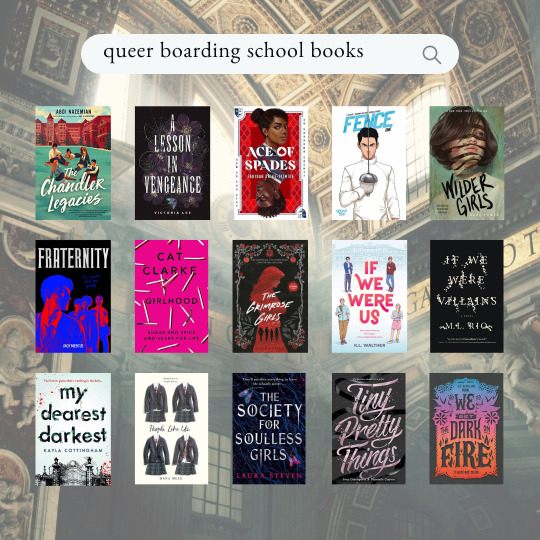
For some reason I don't understand, I've been craving queer books that take place in boarding schools lately, so here are some books that fit this precise trope.
disclaimer: I haven't read most of these books, which means that I am recommending them solely because of their genre, and not because of any content that might be inside it. Trigger warnings and the likes are up to your own search.
The Chandler Legacies, by Abdi Nazemian / dark academia & contemporary
A Lesson in Vengeance, by Victoria Lee / dark academia & thriller, sapphic rep. this one I read, and it was great
Ace of Spades, by Faridah Àbíké-Íyímídé / dark academia & thriller, everyone recommends to check the trigger warnings before reading this one
Fence, by C.S. Pacat, Johanna the Mad & Joana Lafuente / graphic novel/comics & sports, mainly mlm rep with rivals to lovers. a very wholesome series
Wilder Girls, by Rory Power / horror - sapphic rep, I think
Fraternity, by Andy Mientus / dark academia & paranormal - probably mlm rep
Girlhood, by Cat Clarke / mystery - sapphic rep, I think
The Grimrose Girls, by Laura Pohl / dark academia & mystery - sapphic rep again, if I'm not mistaken
If We Were Us, by K.L. Walther / romance
If We Were Villains, by M.L. Rio / dark academia & thriller - I personally loved it more than The Secret History, and it's about theatre gays and murder - mlm rep
My Dearest Darkest, by Kayla Cottingham / horror
People Like Us, by Dana Mele / mystery
The Society for Soulless Girls, by Laura Steven / fantasy - sapphic rep, I think
Tiny Pretty Things, by Sona Charaipotra & Dhonielle Clayton / mystery
We Set the Dark on Fire, by Tehlor Kay Mejia / fantasy
#book recs#queer books#queer book recs#boarding school books#fantasy books#dark academia books#romance books#horror books#out of the forest out of the brain#out of the queue i come
27 notes
·
View notes
Text
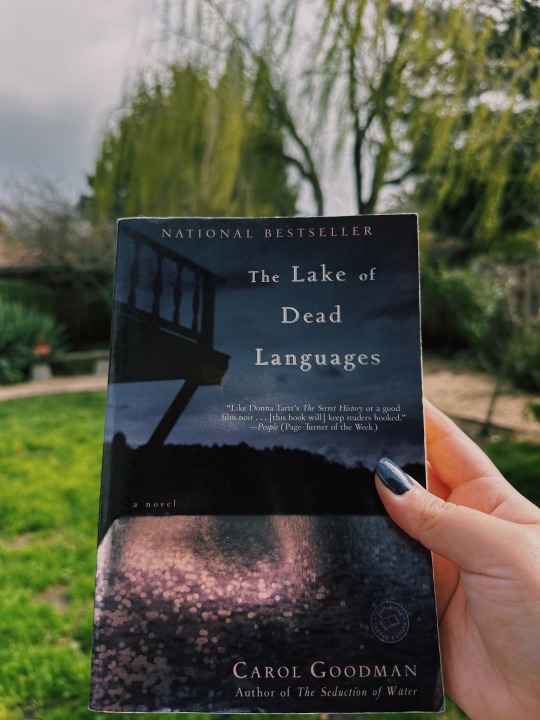
**Update** March 18, 2023
Status: Read Rating: 4.5/5
Finally finished this one and loved it! It was simultaneously dreamy and eerie. I don't understand how it's never been made into a movie; the details in the setting and characters etc. made it an enthralling read.
I made a playlist on Spotify, the same name as the title.
🌨️🪵🦢🌲⛸️🦌
---------------------------------------------------------------------------
February 28, 2023 Current Read: The Lake of Dead Languages by Carol Goodman
50ish% done, truly enjoying this one
#the lake of dead languages#carol goodman#boarding school books#boarding school#current read#currently reading#book review#book reviews#goodreads#goodreads reading challenge#bookish#bookworm#book ratings#2023 reads#lake of dead languages#boarding schools#heart lake#lakes#take me to the lakes
5 notes
·
View notes
Text









“i wanted to vanish completely, that even i would not remember me. no feelings, no memories. just the freedom of oblivion.”
— unknown.
#aesthetic#academia#dark academia#academia aesthetic#books#dark academia aesthetic#reading#poetry#quote#moodboard#books and coffee#dA#the library#classics#literature#writing#writer#tumblr#post#daily#board#pinterest#classic academia aesthetic#light academia#school#university#language#study#the secret history#dead poets society
570 notes
·
View notes
Text





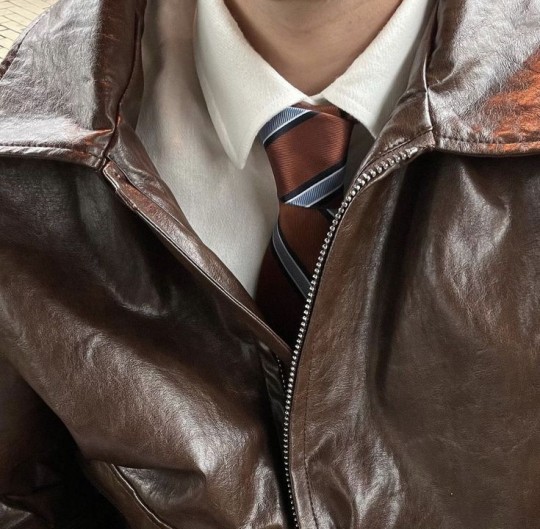
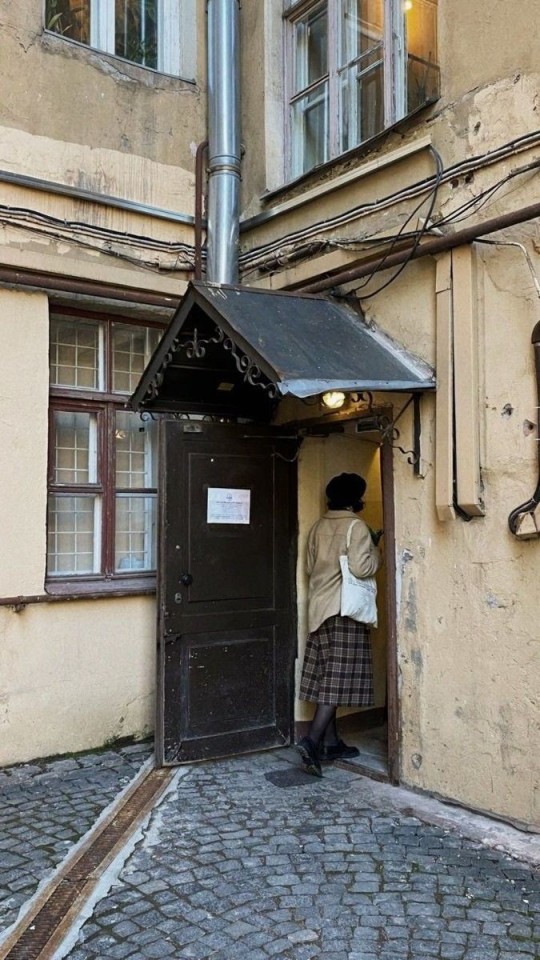


boarding school aesthetic
#aesthetic#dark academia#coffee#art#books#academia#college#light academia#studyblr#literature#boarding school#Boarding school aesthetic#dead poets#dead poets society#neil perry#john keating#English#History#Latin#Math#Theatre#Classics#Student#libraries
3K notes
·
View notes
Text
1K notes
·
View notes
Text
you murdered me, but not in the usual way
#lolita1997#dolores haze#humbert humbert#vladimir nabokov#vladimir Nabokov book#fan edit#artists on tumblr#edit#aesthetic#tumblog#video#tumblr#lana del rey music#ldr#ldr aesthetic#lana del rey#lana del rey unreleased#lana del rey songs#boarding school#coquette#coqeutte#dominique swain#jeremy irons#90s aesthetic#90s fashion#fashion icon#book#not a love story#edits#tumblelog
1K notes
·
View notes
Text

Fyodor Dostoevsky, Complete Letters
#dark academia#dark academia aesthetic#chaotic academia#academia aesthetic#dark#literature#academia#chaotic academic aesthetic#literacy#bookworm#just a 1900s boarding school boy with his close totally platonic friends#fyodor dostoevsky#fyodor dostoyevsky bsd#dostoevksy#bsd dostoevsky#russian literature#books and libraries#literature quotes#light academism#light acadamia aesthetic#light academia quotes#light academia#dark academia quotes#dark academic aesthetic#dark acadamia aesthetic#dark academic#dark acadamia quotes#dark academism#dark acamedia#bsd fyodor
220 notes
·
View notes
Text
Lois Beckett at The Guardian:
Attacks targeting American public schools over LGBTQ+ rights and education about race and racism cost those schools an estimated $3.2bn in the 2023-24 school year, according to a new report by education professors from four major American universities. The study is believed to be the first attempt to quantify the financial impact of rightwing political campaigns targeting school districts and school boards across the US. In the wake of the pandemic, these campaigns first attempted to restrict how American schools educate students about racism, and then increasingly shifted to spreading fear among parents about schools’ policies about transgender students and LGBTQ+ rights.
Researchers from UCLA, UT Austin, UC Riverside and American University surveyed 467 public school superintendents across 46 US states, asking them about the direct and indirect costs of dealing with these volatile campaigns. Those costs included everything from out-of-pocket payments to hire to lawyers or additional security, to the staff member hours devoted to responding to disinformation on social media, addressing parent concerns and replying to voluminous public records requests focused on the district’s teachings on racism, gender and sexuality. The campaigns that focused on public schools’ policies about transgender students often included lurid false claims about schools trying to change students’ gender or “indoctrinating” them into becoming gay. This disinformation sparked harassment and threats against individual teachers, school board members and administrators, with some of the fury coming from within local communities, and even more angry calls, emails and social media posts flooding in from conservative media viewers across the country.
In addition to the financial costs of responding to these targeted campaigns, the study revealed other dynamics, the researchers said. “The attack on public officials as pedophiles was one I heard again and again, from people across extremely different parts of the country: rural, urban, suburban. It speaks to the way that this really is a nationalized conflict campaign,” said John Rogers, an education professor at the University of California, Los Angeles, and the lead author of the study. The frequency with which both school board members and school superintendents were “being called out as sexual predators – it was really frightening”, Rogers said. Superintendents from across the country told the researchers how these culture battles had affected their schools, and cut into resources they would have preferred to spend on education.
[...] While disagreement, debate and dealing with angry parents are a normal part of local public school administration, the researchers noted, the political campaigns that schools have faced in recent years have been anything but normal. Many of them have been driven by “a small number of active individuals on social media or at school board meetings”, and fueled by misinformation. The school-focused campaigns, which started with claims that elementary and middle schools were harming white students by teaching critical race theory and later shifted to attacks on schools’ policies for transgender students, were nationally organized, with “common talking points” that could be traced back to conservative foundations and rightwing legal organizations, and were intensely amplified by rightwing media coverage, Rogers said.
Public schools across the US burned up nearly $3.2BN worth of money fending off right-wing culture war items such as book bans, anti-LGBTQ+ extremism, anti-student inclusion, and anti-racial equity policies.
See Also:
The Advocate: U.S. public schools lost $3.2 billion fighting conservative culture wars: report
#Schools#Culture Wars#Parental Rights#Public Schools#School Boards#Education#School Curriculums#Student Inclusion#Book Bans#Forced Outing#Anti LGBTQ+ Extremism#LGBTQ+#Critical Race Theory#Racial Equity#Anti Trans Extremism#Transgender
146 notes
·
View notes
Text




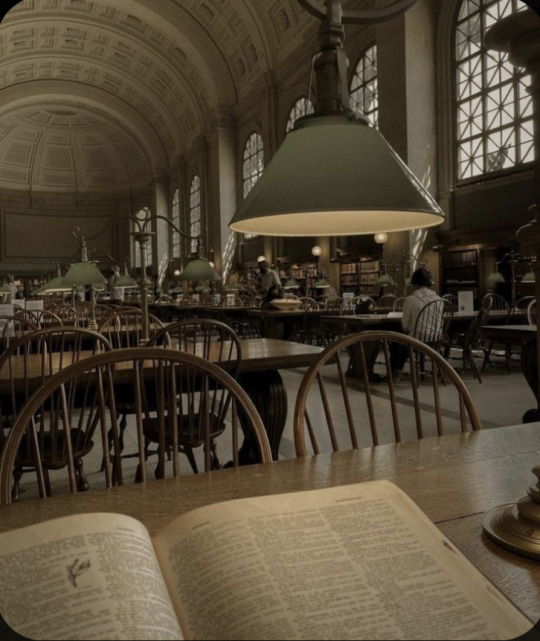



“You can never be overdressed or over educated”
- Oscar Wilde
#dark academia#light academia#girlblogging#bookish#books and libraries#chaotic academia#book quotes#autumn#boarding school#romantic academia#classic academia#dark acadamia aesthetic#reading#bookworm#education#oscar wilde#the secret history#if we were villains
980 notes
·
View notes
Text

“May I offer you a cough drop, Dolores?”
kaitlin's 100 favorite female muses — 56/100: Minerva McGonagall
#character aesthetics#character challenge#moodboard#character moodboard#character aesthetic#kaitlin's 100 favorite female muses#harry potter#aesthetic board#aesthetics#aesthetic#mood board#harry potter edit#harry potter fandom#harry potter fanart#harry potter books#hp fandom#hp fanart#Harry Potter aesthetic#professor mcgonagall#minerva mcgonagall#mcgonagall#dame maggie smith#maggie smith#rip maggie smith#rip dame maggie smith#witch aesthetic#witchcraft#hogwarts#hogwarts school of witchcraft and wizardry#gryffindor
105 notes
·
View notes
Text

Conspiracy!🤯 One of my interior illustrations for the Ukrainian Magic Academy art book, full of easter eggs that will only make sense for the locals.
The book is still available for purchase, 75% of all proceeds will go towards the Come Back Alive foundation. All text inside is in both Ukrainian and English. International shipping is available, but unfortunately not worldwide. This book can also be used a setting for your games or just a cool magic school alternative for HP made by a lot of loving people and not a moldy terf. My cover art for the same project: 99 reasons NOT to enroll in UMA If you like my art, consider tipping! MY TIP JARS HERE ❤️🩹
#Українська Магічна Академія#Ukrainian Magic Academy#UMA#УМА#magic#Ukrainian art#Ukrainian artist#book cover#cover art#book illustration#illustration#disarmonia#d1sarmon1a#Veronica Anrathi#украрт#ukrart#fantasy#oc#oc art#original art#original character#professors#teachers#students#school#conspiracy#conspiracy board
100 notes
·
View notes
Text
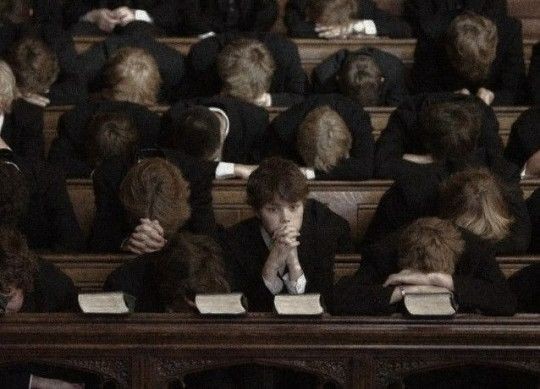

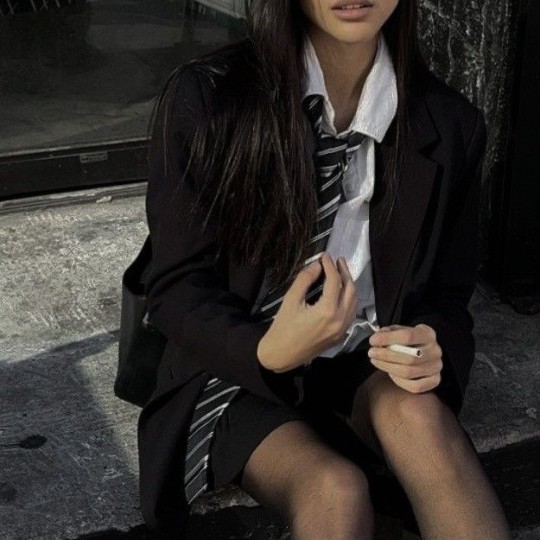
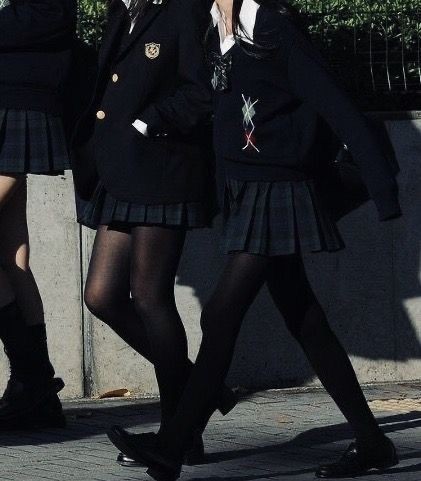
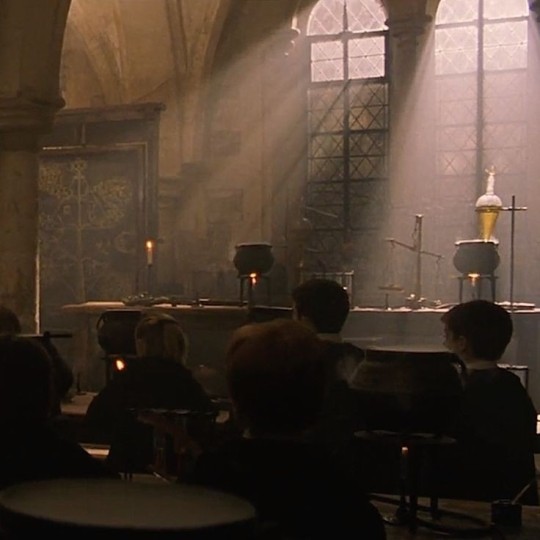

#dark academia#dark acadamia aesthetic#aesthetic#dark academism#books#dark acadamia quotes#light academia#chaotic academia#dark academia aesthetic#classic literature#classics#english literature#mood board#dark academia moodboard#boarding school#the secret history#classic academia#classic aesthetic#classical mythology#vintage classics#brown tones#dark academia literature#autumn academia
549 notes
·
View notes
Text

⭐️⭐️⭐️⭐️ 4/5
#2023 reads#book reviews#book review#books & libraries#bookish#mystery#thriller#truly devious#maureen johnson#boarding school books#january tbr#sherlock holmes#booklr#bookblr#booklr account#book blog
2 notes
·
View notes
Text
anyone interested in talking about the iconic 2000's middle-grade-bordering-on-ya book series gallagher girls??
#okay incoming rant about this series#i read the first book when i was 10 or 11 and i was absolutely obssessed with it. i read it so many times i had the entire story memorized#the issue was that i could not find the rest of the series anywhere. it was either sold out or out of stock#and then i found out that only the first 3 books had been translated into my first language so at that point i kinda gave up on them#anyway#flashforward to a couple of weeks ago#i was re organizing my bookshelf and on the back i found LYKY (is this how y'all are abreviating it??)#and remembred how much i loved it#and since i'm now fluent in english and was stuck at home recovering from a surgery i decided to download the entire series and read it#to find out what the fuck happened afterwards#long story short i read all six books in 4 or 5 days#and i haven't stopped thinking about them since#it's actually so funny how little information we have in the first book#i went all of these years thinking it was mostly a silly series about a boarding school for spies when actually SO MUCH happens afterwards#i can't believe i went all of these years unaware of zach goode's existence#truly character of all time#but also i can't stop thinking about how interesting it would have been if zach had come to hate the circle and his mom during the series#rather than before#make it a true enemies to lovers#and have us witness that portion of his character developement in real time instead of being told about it#like him slowly realizing through cammie and his time at gallagher that maybe what they were doing is wrong#i think it would have been very interesting to read#although let's be real it took me until halfway through book four to trust him and he was fully one of the good guys so..#but yeah i have a lot more to say but these tags are long enough#gallagher girls#okay i just want to add another funny anecdote about my experience with this series#my copy of LYKY has an age warning in the back recomending that readers should be above 13 yo to read it#and i distinctly remember finishing it and thinking the warning was kind of dumb bcs besides a few mentions of death and other heavier topi#nothing really happened#and now i realize it was a warning for the rest of the series not just the first book because jesus fucking chirst everything after
71 notes
·
View notes
Text
Jumbled
(ao3 link)
Summary:
RIP Sodapop Curtis, you would’ve loved having an IEP/504 Plan.
(AKA, Soda struggles in school his whole life, and doesn’t understand why, because it’s the 1950s and 60s and getting a diagnosis for a learning disability isn’t exactly on the table. Neither is the scaffolding and support he really needs.)
Sodapop Curtis was the type of kid who sat at the kitchen table for hours on end crying over math homework until his dad got home from work and struggled to explain it to him. All that effort, and then he’d always inevitably lose it somewhere between the kitchen table that night and his teacher’s hand the next morning and all that effort would be for nothing.
Soda was five years old when he started kindergarten, at the tail-end of the summer of ‘56. He remembers his mom comforting him the night before, when he cried because he was going to miss Ponyboy who wasn’t old enough for school yet and because Darry was going into fourth grade and would be on the other side of the school all day, and Soda would never get to see him. He remembers pouting because Keith Mathews, his and his brothers’ collective best friend from down the street was going into first grade after promising Soda last year that he’d get in a lot of trouble so he could stay and do kindergarten with him (he lied).
And then Soda was just plain miserable, sitting there on the bus sandwiched between Keith and a boy a little younger than Sodapop named Johnny Cade (who lives two doors down from the Mathews’ house and Soda never sees because his parents are mean and keep him inside all day), because Darry decided he was “too cool” to sit with his horse-crazy kid brother in favor of the big kids whose mommies don’t make them wash their hair when it’s dirty and greasy and walk around with those little black switch-combs and pretend they’re the coolest kids on planet earth, ‘cause one day those combs will swap out for blades and they will be.
Probably because they are, but Sodapop doesn’t know that yet—right now he doesn’t really know or care about grease or what side of town he lives on. He is six years old and the only thing on Soda’s radar right now is that Mama promised they’d save up for him to go to horseback riding camp next summer, and that’s his biggest dream. He wants to be a rodeo legend or win the Kentucky Derby or something. He hasn’t quite decided yet. He figures he has time to parse out the specifics—he just wants to ride a horse.
They get to school, and after a particularly pushy reminder that Mama told him at the bus stop this morning to make sure Soda gets to his classroom alright, Darry points his little brother toward the Kindergarten wing. Soda takes Johnny Cade’s hand in his because he found out on the bus that Johnny is going to have the same teacher as him, and they push through the hallway of their elementary school to find Mrs. Moran’s Room Four.
Soda very quickly learns that not every kid goes into kindergarten equally. Johnny is the smallest and the youngest kid in their grade, and Soda’s the second-youngest and it only takes a few weeks for Soda to think to himself that maybe that’s why he can’t read yet. He’ll be six soon, and that’s how old Evie is. Most of the kids who live on his side of town started kindergarten when they were six, he realizes. She sits next to Soda and she’s a good reader, but she’s one of the oldest kids in their grade and so of course she’s smarter than him. Then again, Sherri Valance, who is also in his class, isn’t going to be six until next spring—kind of like Johnny, and according to the birthday chart on the wall—he asked Mrs. Moran to read it to him one day when he couldn’t sleep during nap time and she very begrudgingly agreed, so he memorized everyone’s birthdays and how old they’d be turning because why not, right?—but Sodapop finds out that she went to preschool.
He didn’t go to preschool. He doesn’t know anyone who did. He remembers Mama talking to Dad about preschool for Ponyboy this year, but Dad said something about “expensive” and Soda stopped listening ‘cause they always get sad or angry when that word comes up.
Sherri Valance can read and she’s got pretty red hair and a backpack that’s not even a hand-me-down, and she went to preschool. So did all her friends in Room Three. Soda doesn’t know anybody in Room Three but he knows that the kids his friends know in there didn’t go to preschool. Timmy Shepard was in Room Three last year with Keith. He didn’t go to preschool either; heck, neither did Keith. But they can both read now, and they went to first grade, so Sodapop figures he didn’t miss out on too much.
Until it’s the end of the year and he still can’t read. Well, you don’t need to read to go to horse camp. Soda doesn’t nap a single time that year, either. He spends his precious kindergarten naptime not-reading the book Mrs. Moran gives him to keep him busy and picking at his cot when she snaps at him to be quiet. Mrs. Moran decided the day she read his first name off the attendance sheet that she didn’t like him, and Sodapop Curtis did not like her either.
First grade is so much better and yet so, so much worse.
Soda has a very hard time on his first day, because he misses his mom, and his dad, and Ponyboy, who begged to go to school too this year but he’s still too little at only four years old and Mama’s doing her best to get him reading now. Darry is in fifth grade and seems even farther away, and Soda doesn't have recess with Keith and Tim’s grade this year, and Johnny’s in Room Seven making new friends. Evie’s in Room Eight, and Soda’s trapped alone in Room Nine. Sherri’s still in his class. On the third day of school, Soda decides her hair reminds him of cherries. She laughs, and it sticks.
The best and brightest part of first grade is his teachers. He was put in Mrs. Larkin’s room, and she’s amazing; but when he gets there on the first day, there are two teachers in the room. Miss Luft, it’s explained, is a student teacher, which means she’s learning about first grade just like they are. She’s learning how to teach and they’re learning how to learn.
Sodapop still doesn’t even know the alphabet. He doesn’t know his sounds and he can’t keep his letters straight. Mrs. Larkin has him sit with Miss Luft when he tries to write a small moment story. She draws lines in marker on his paper for him to write each word on. Every line she has to make longer than the last because he can barely fit two letters on it, and he’s pretty sure she can’t read what he wrote any more than he can.
But Miss Luft always calls him capable. She has to explain to Sodapop once a week what that word means. He does his best to remember, but he has a lot of things to remember and it gets lost in the jumble somewhere.
He hears Mrs. Larkin and Miss Luft talking, sometimes. They hide their words behind stacks of paper and turned heads but he can hear them anyway.
Reversals. Attention span. Off the wall.
“And he’s low,” he hears Mrs. Larkin say one morning. “Mrs. Bolan’s got one that low too, but at least hers is quiet.”
He has no clue what any of it means. It’s all teacher talk, he isn’t supposed to get it, and he knows they aren’t trying to hurt his feelings, but hearing it makes him feel bad anyway because they don’t talk about other kids like they do him. They don’t get those sad looks on their faces about other kids, either.
“Does your brain get jumbled sometimes, Soda?” Miss Luft asks him one day when he’s sitting at his desk, eyes red and puffy from crying because he wasn’t allowed to go to gym class unless he finished his spelling worksheet. But he can’t. He’s been sitting here for forty-five minutes, ever since they got back from recess, and he can’t. Do. It. He tries to write his letters how his teachers have shown him but they just won’t appear in the place he wanted them to, like his pencil won’t obey him when he writes. He tries to start at the top line and somehow his pencil puts itself at the bottom.
He tries to write the letters anyway, but they don’t look like he thinks they’re supposed to, and he doesn’t even know what that means because every time he looks at a b or d, or m or n or h, or—god forbid someone tells him to write the letter k. It just looks like a stick.
His numbers are just as bad. Someone’s always reminding him to put the one before the seven instead of the other way around, but he doesn’t remember writing seventy-one, he can’t even count that high!
“Jumbled?” He says in a shaky voice, still trying to calm down.
“Like mixed up. Like it’s hard to think ‘cause you got too much going on in there?” She taps his forehead and he half-heartedly giggles.
“Yeah, it gets real jumbled. All the time,” Soda says.
“I feel like that sometimes too,” Miss Luft says, and she sighs. “Like I can’t think at all some days. Like my brain shuts off without me tellin’ it to because there’s too much goin’ on and I can’t focus, and just answering one question gets overwhelming. It’s too much. But it’ll be okay, Soda, I know you got it in you. I believe in you, you hear? If I could do it, so can you.”
She doesn’t say much else, but Sodapop has never felt more seen. He cries and clings to her on her last day at their school, hating that she only got to stay for ten weeks. Mrs. Larkin is amazing and he loves being in her class, but the year just drags on and on, and towards the end of the year Soda can’t decide if school is getting harder or he’s getting dumber. Maybe it’s both.
He gets to go to horseback riding camp that summer, and he meets a kid named Dallas who he thinks was in Room Seven with Johnny. Dallas is mean. Soda finds out he’s a whole year older than him, which confuses him because Dallas is in his same grade at school.
“An’ how come I never seen you at recess or nothin’?” Soda says one day at lunch. He’s got a bologna sandwich, because his mom swears by cold cuts. Dally stole an apple out of their counselor’s lunch and doesn’t seem to have anything to eat otherwise.
“They don’t let me out much,” Dallas says. “S’what happens when you spend all your time in the principal’s office.”
“Why?”
“I dunno. Just feels good to get in trouble sometimes.”
Soda doesn’t get him, but he likes horses, and so they become friends anyway. He and Dally start getting into trouble together, and Soda kind of starts to feel like he belongs somewhere. It takes his mind off the upcoming school year, which is great, because whenever he thinks about school, he gets butterflies in his stomach.
Dallas is in Room Twelve with Johnny when they get to second grade. Usually Soda keeps track of what classes all his friends end up in, but this year, it doesn’t matter anymore. Because second grade changes everything.
Mrs. Foster is ancient. She taught Soda’s mom once upon a time, and she had Darry in her class a few years earlier. Soda thought she’d be a great teacher because Darry loved her, but Soda can’t bring himself to even pretend to like her. She asks him what his parents were on when they named him.
“On what?”
Mrs. Foster just rolls her eyes and tells him to take a seat in the back where he clearly belongs. She lets him know that she’ll be calling him by his middle name this year. At least “Patrick” is “dignified.” Whatever that means.
Later, Soda can’t keep his words from erupting out of his mouth like a volcano during morning meeting, and she sends him back to his seat with a glare.
Five minutes later Steve Randle gets sent back to his seat for shouting out, too. He sits next to Soda in the back. He’s hiding a little red toy car in his desk and they play together. Mrs. Foster doesn’t seem to notice or care. She doesn’t call on Soda a single time that year, even when he does know the answer.
She also doesn’t like that Sodapop writes with his left hand. By the time he gets to third grade, he flinches and corrects himself every time he goes to pick up his pencil. He hopes this’ll solve the problem, but it never does.
Soda struggles the whole year. Steve doesn’t, and when Soda asks when his birthday is—he always needs to know, he needs to be able to sing happy birthday to all of his friends—Steve tells him he was born in April, the same year as Soda. Soda tells him how he can’t find a single pattern proving why he’s dumb, ‘cause age doesn’t seem to matter. Sherri aka Cherry is younger than him but smarter. She went to preschool. Johnny’s younger too, but he didn’t. Steve’s older and smarter but he tells Soda that he didn’t do preschool either.
“I did kindergarten twice, though,” Steve tells him. “Well, the first couple weeks anyway. Mom and Dad wanted me to start school when I was five but then I had to not do the whole year ‘cause my mom got sick and we were too busy and then she died so I stayed home with Dad. I did kindergarten the next year when I was six. Now I got friends in third grade and in second grade.”
They agree that Soda’s going to be Steve’s best second-grade friend. They trade that little red car back and forth and Soda still can’t read very well but he’s better at it now—Mrs. Larkin worked extra hard with him after Miss Luft left to make sure he knew his letters and sounds.
Mrs. Foster doesn’t seem to care, because she pretends he doesn’t exist. It’s a miracle Sodapop gets to third grade.
But it doesn’t matter. School doesn’t matter. Over time Soda just starts to remind himself that he has Steve, and Steve is smart, he’ll help him. Soda will get through this. Sure, after third grade Johnny gets held back, and it’s only a matter of time until Sodapop has to repeat a grade too, but… but he’ll be okay. He will. Someday a switch will go off and his brain will work right and he’ll be able to do it. He hasn’t failed yet, that has to mean something, right?
He hasn’t failed yet but no one has noticed he struggles, not his teachers, not his friends, no one. Maybe Miss Luft, but he’ll never see her again. He hopes she still thinks he’s capable. He had written in the book their class made for her that his favorite thing about her was that she believed in him.
As he gets older, he wonders if she even remembers his name.
But then again, he spends every weeknight crying at the kitchen table, physically unable to get past the first question on his homework sheets. In fourth grade Mama starts clearing everything off the table to help him focus, but he picks at the crumbs left behind from last night’s dinner, peels up the dried finger-paint Pony splattered everywhere, sits and rocks back and forth with each tick of the clock.
And every day after about an hour of making up little songs and fiddling on his paper until it’s spotted with holes, he starts crying, because he can’t bring himself to do his homework. And then Pony’s in school, finishing his homework before him, and Pony is just as much of a daydreamer, so that kind of stings. Darry has seven different classes to do homework for, on top of football practice, but he gets all his work done before Soda’s even started. His mom tries to help but it makes him cry even harder, ‘cause she doesn’t get it, it’s not about the homework it’s about his brain. It’s about Soda’s brain not working like everyone thinks it should.
It’s about his big, dumb, broken brain.
Johnny can’t read either, but he can focus, he can control his emotions and not cry or scream or stomp his feet at every little sound or touch, or overreact to things that aren’t a big deal at all, he doesn’t start throwing throngs off his desk when he’s mad, and he always has a reason why he does things. Steve can’t control his mouth or pay attention, but he can read and always turns in his homework on time. Keith never does his homework ever but he’s practically a genius compared to Sodapop.
Ponyboy brings home his first-ever spelling test and their mom sticks it on the fridge with a magnet.
That bright-red 100% is going to haunt Soda’s dreams.
Every night Dad gets home at 6:00 to find Soda still sitting at the table, eyes red and puffy, and tears staining his homework and the table. He chides him for the new mark Soda’s left in the table’s surface from digging the eraser-end of his pencil into it. Soda deflates, he didn’t mean to do that, it’s just—what else is he supposed to do? He’s not allowed to get up until his homework’s done.
Darrel Curtis Sr. is a loving father and a very easy-going guy, until he’s standing there over Soda’s shoulder holding his hand—his left hand, which Soda’s grateful for but also it feels so wrong after his experience in third grade—forcing him to write in the answers because he just doesn’t get that writing it is only part of the problem. His dad loves him, he’s gentle with his touch but every inch of Soda’s skin feels like it’s on fire when his dad makes him write.
It’s not his dad’s fault, but Darrel Sr. is only human, and he hates yelling at his kids, but he has to raise his voice to try to get Sodapop to hear him above his scream-crying because it’s the only way to help him learn.
Sometime when Soda’s in seventh grade, Ponyboy asks him what his problem is. Homework’s not that bad.
“I don’t like it anymore than you do, Soda, but I just don’t think it’s worth crying over, you dig?”
Soda throws his pencil at his brother, slams his history book shut, and walks out the back door. Ponyboy watches in confusion. When their mom comes in to check on them, he tells her Sodapop’s overreacting again.
Dally, who had moved away after third grade to New York but came back just in time to start seventh grade with Soda, finds him at the Pershing Park playground sitting on the swings. It’s where Soda ends up when he’s hopelessly overwhelmed by homework, or when the thought of school looms over him like a cartoon anvil. Something about pumping his legs and willing the swing to take him higher and higher takes away the sick feeling that the idea of popcorn reading Shakespeare in his fifth period English class gives him. Dally asks him if he wants to find something better to do, and a few hours later they wind up back at the Curtis house with busted knuckles and the beginnings of black eyes and they pour grease into Soda’s hair and grin at each other.
When Sodapop is sixteen years old, a sophomore in high school, his father finds him sitting at that same kitchen table, staring down over an assignment that’s asking him to write a thousand-word essay and Soda turns to his dad wordlessly, his throat is closing up, and his dad tells him to breathe.
But he can’t. He can’t. He’s going to be sick, he might actually throw up. He feels like he’s being stabbed in the chest. One thousand words. Sodapop can’t even count that high. He can’t even read Dr. Seuss. He can’t do this anymore.
“Dad, I want to drop out.”
“Aw, Pepsi-Cola,” his dad says gently that night, brushing Soda’s hair back and then pulling him into a hug, “I know you do. I’ve been talkin’ to your mother about it. We got the paperwork from the school. But I think you should think about it a little longer, alright?”
Soda agrees to try and finish out the year. His dad gets it.
His dad spent ten years listening to Soda cry over homework. His dad never called him dumb. His mom did what she could. But the only person in all his years of school who Soda ever knew really believed in him was Miss Luft, and she never came back.
He thinks maybe if he had more teachers like her, who believed in him and gave him extra help and supported him along the way, if there was something—something that made it so they had to listen to him, had to help him, had to accept that it wasn’t his fault he couldn’t read right, couldn’t focus, couldn’t control his mood swings or emotions or his volcano of a mouth… maybe he could’ve done better. Maybe if Mrs. Foster had let him write with his left hand, he could’ve figured it out.
Soda hopes one day they figure out what makes kids like him tick. What makes them struggle. He hopes one day that their schools will decide to help.
A few months after he talks to his dad, Sodapop finds the signed paperwork in his dad’s desk drawer. His parents have just been buried, and Soda can’t stop crying at the drop of a pin. He’s been skipping all his classes, but none of his teachers seem to care. It’s fine. He’s dumb anyway, a lost cause. They’ll just keep passing him up to the next grade without batting an eye at the fact that he never gets higher than a D+, no matter how hard he tries.
Sodapop will always be that one student who slips through the cracks.
He looks over the form to drop out. He figures the school will take it, if he pitches it to them as a last-will kind of situation. He doesn’t even need to ask Darry to give the okay, because Dad signed it months ago, like he had already known the decision Sodapop would make.
And he did. It’s dated that same night Soda sat at the kitchen table feeling like the world was ending and like he was dying because of a goddamn required word count.
But he knows Miss Luft believes in him, and he knows what his dad wanted, so he finishes out the school year—passes Gym and Auto Shop, too.
Soda hopes he made them proud. And now, he’ll never have to worry about explaining the dried tears on his spelling homework ever again.
#sodapop curtis#the outsiders musical#the outsiders book#outsiders fanfic#ponyboy curtis#darry curtis#steve randle#twobit mathews#johnny cade#dally winston#hello outsiders fandom#in which soda experiences the adhd feeling of hours spent at the kitchen table crying over homework#and finds out his parents were in fact on board with him dropping out#and thinks schools should do more for kids who need extra help#as written by a certified teacher lol#julie writes stuff#my post
52 notes
·
View notes
Text


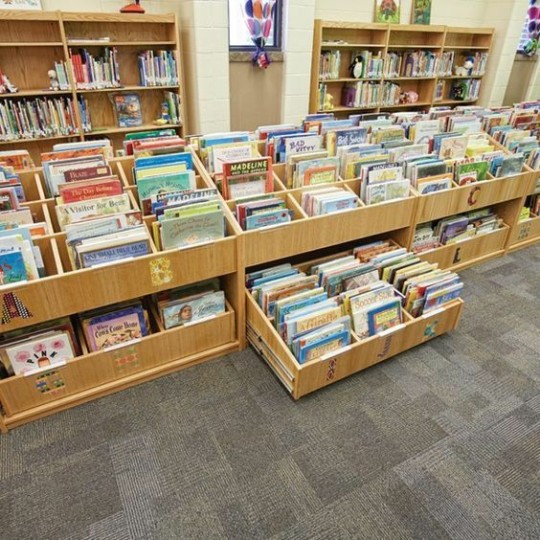
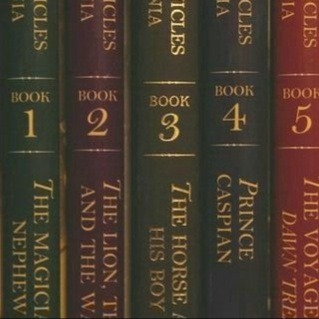




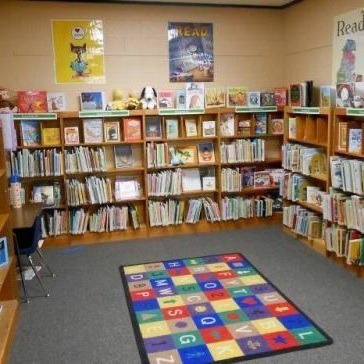

25 days of moodboards day twelve! (nostalgia)
#i have a lot of general nostalgia boards already so i mad this one library themed!#we didnt go to our public library a lot when i was younger (moved around too much and my brother was a loud kid)#but i loved my school library and little free libraries!#anyways all of this to say SUPPORT YOUR LOCAL LIBRARY#GET A CARD#YOU CAN CHECK OUT E-BOOKS AND DVDS AND CRAFT KITS AND MAGAZINES AND GO TO EVENTS#DO IT#moodboard#books#nostalgia#agere#mine#library#dear america#chronicles of narnia#<< i loved both of these series#i wanted to put the royal diaries and fairy rainbow magic on here too but i couldnt find any good pictures
103 notes
·
View notes